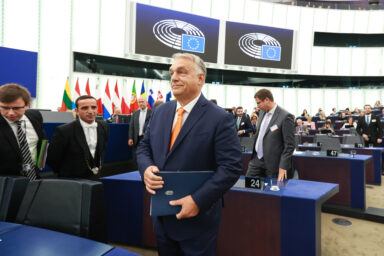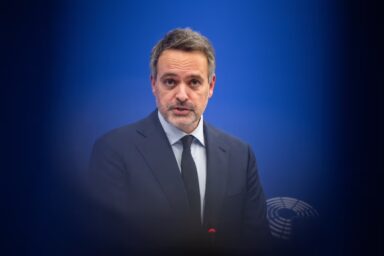Berlin’s plans to build new gas power plants get a partial okay from Brussels, meaning the country will be able to supply ample subsidies to the construction. The news comes despite the government dropping the originally planned requirement for the plants to be capable of future conversion to hydrogen.
Germany has received the go-ahead from the European Union for more than half of its planned gas-plant expansion, and remains in “advanced talks” regarding the rest, economy minister Katherina Reiche said.
Berlin was able to negotiate state aid approval for “significantly more” than half of the 20 gigawatts of planned capacity, Ms Reiche said during a trip to the eastern city of Spremberg on Monday. She added that the first tender is due to come around the end of this year.
No hydrogen requirement
The European Union in June relaxed state-aid rules to make it easier for member states to invest in green technologies. Germany has argued that an expansion of gas-fired power plants is necessary to replace dirtier coal generation, and the country has already phased out nuclear energy. “We are much further along with the Commission than we dared to hope three or four months ago,” Ms Reiche said.
Germany’s previous government under Olaf Scholz had planned to construct new gas-fired power plants, albeit with only half the capacity. While the new plants could later run on hydrogen, the current Friedrich Merz government has dropped this as a strict requirement. Instead, it hopes to ensure emission reduction through carbon capture.
You might be interested
We are much further along with the Commission than we dared to hope three or four months ago. – Katherina Reiche, Federal Minister for Economic Affairs and Energy of Germany
The government intends to lower electricity prices by at least five cents. Along with the construction of the new gas plants, it plans to lower the price by cutting the electricity tax to the European minimum, cut grid fees and introduce an industrial electricity price. A heating law aimed to phase out fossil fuel heating that established a gas storage levy, in place since 2022 to cover the costs of replacing Russian gas, is also likely to be abolished.
Bavaria wins
The government still targets net-zero by 2045 and to continue with the implementation of the Paris Climate Agreement but seeks to implement a binding EU climate target to cut net emissions 90 per cent by 2040.
Domestic political concerns are at play, too. The new plants are to spring up in the south of the country. Minister Reiche announced as much at a party convention of her Christian Social Union in Bavaria this past spring. That also is where the CSU is active.
These states have a considerably lower average share of renewable power production throughout the year than their northern counterparts. In forthcoming auctions for the plants, which are to fill electricity production gaps during periods of low renewable energy output, the government will offer a ‘south bonus’ to encourage the construction of two thirds of the planned 20 gigawatts of new capacity in southern states, Ms Reiche said according to news website Zeit Online.











